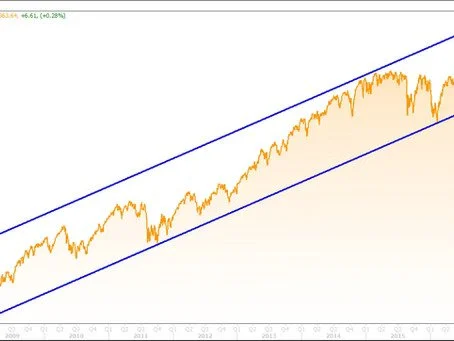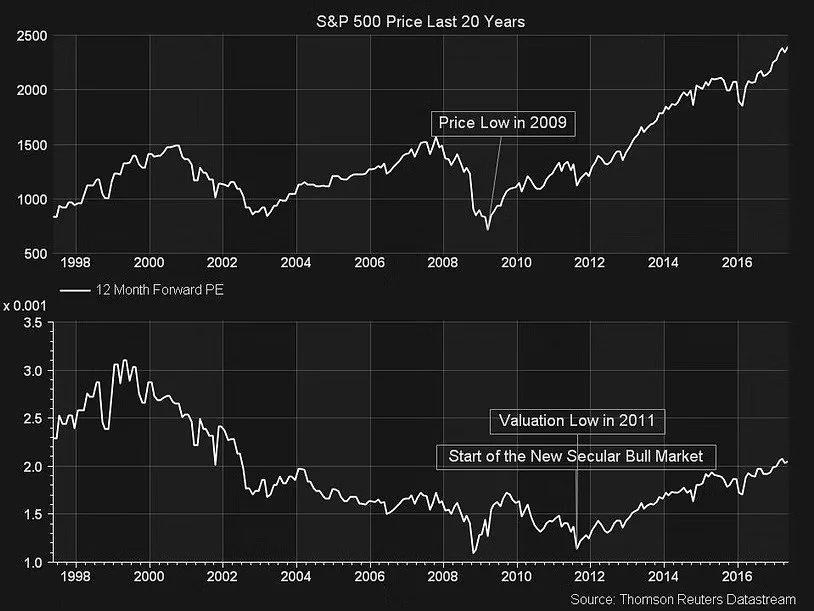Do You Really Want to Sell This Market?
Even after the recent political news, stocks appear to be very close to all-time highs and trading in an established long term channel.
According to Bespoke Investment Group, the NASDAQ dropped over 2% for the first time in 100 trading days on Wednesday (5/17/17). This comes on the heels of exceptionally low volatility since April 24th as measured by the VIX (a volatility indicator often used to judge sentiment in stock prices) dropped into a new low trading range. Considering how little volatility investors have become accustomed to as of late, we would be surprised if Wednesday’s sudden selloff in stock prices did not make main street investors uncomfortable.
The first thing to try understand is that U.S. stocks are currently in a secular bull market, in our opinion. When we think stocks are in a Secular Bull Market we want to get onboard and enjoy the ride and even use the volatility to our advantage. Secular Bull markets have historically lasted for 15 to 16 years from the valuation lows of the preceding bear markets, with some bulls running longer and some running shorter. The price low for the Great Recession Bear Market was in March of 2009 but the valuation low – the point at which we are now marking as the start of the current Secular Bull market wasn’t until 2011. Therefore, we think that this bull still has many years left to run. Having said that, we don’t subscribe to the notion that time kills bull markets. We think that bull markets typically die of shocks to price levels (think inflation) or declining earnings growth (think deflation or recession).
If you only remotely follow the news on Wall Street, you are probably aware that the recent drop in stock prices was related to political news. As we have written frequently, we think political bets are almost always bad bets. The reason for our position on political prognostication is that nobody knows the outcome of political events before it’s too late to act on them and because it’s hard to anticipate how markets will react to the expected outcome.
Investors should certainly have a risk management plan in place and continue to follow that discipline. But the indiscriminate selling of stocks is fear management, not risk management. We think our efforts are better spent gauging the potential for earnings growth, the outlook for inflation and interest rates, the stance of the Fed and most importantly the dominant trend. Cyclical Bear Markets within the context of Secular Bull Markets tend to be more shallow and short lived than Cyclical Bear Markets that happen during Secular Bear Markets. Therefore, our advice is to employ bull market strategies.
“Well, it’s a bull Market” – quote attributed to a trader named Old Turkey in Reminiscences of a Stock Operator by Edwin Lefevre.


